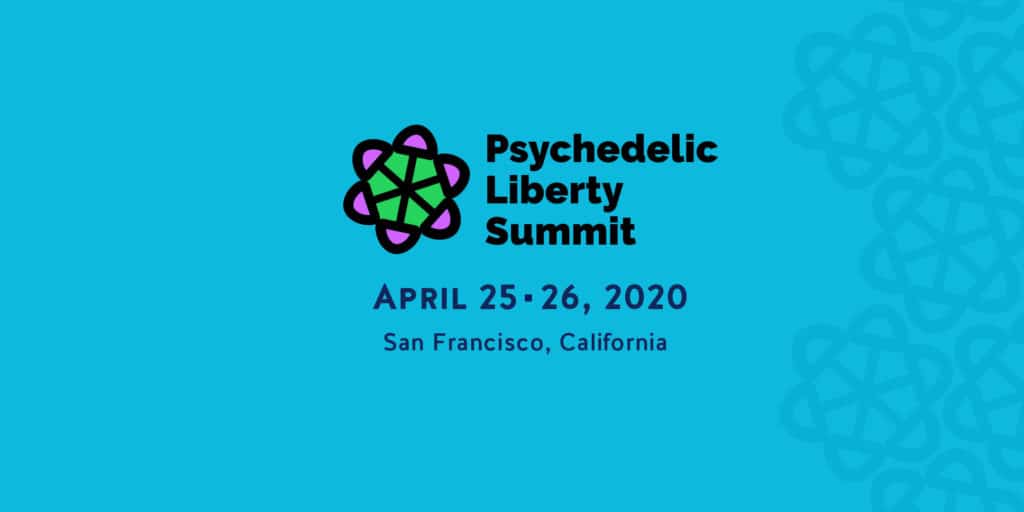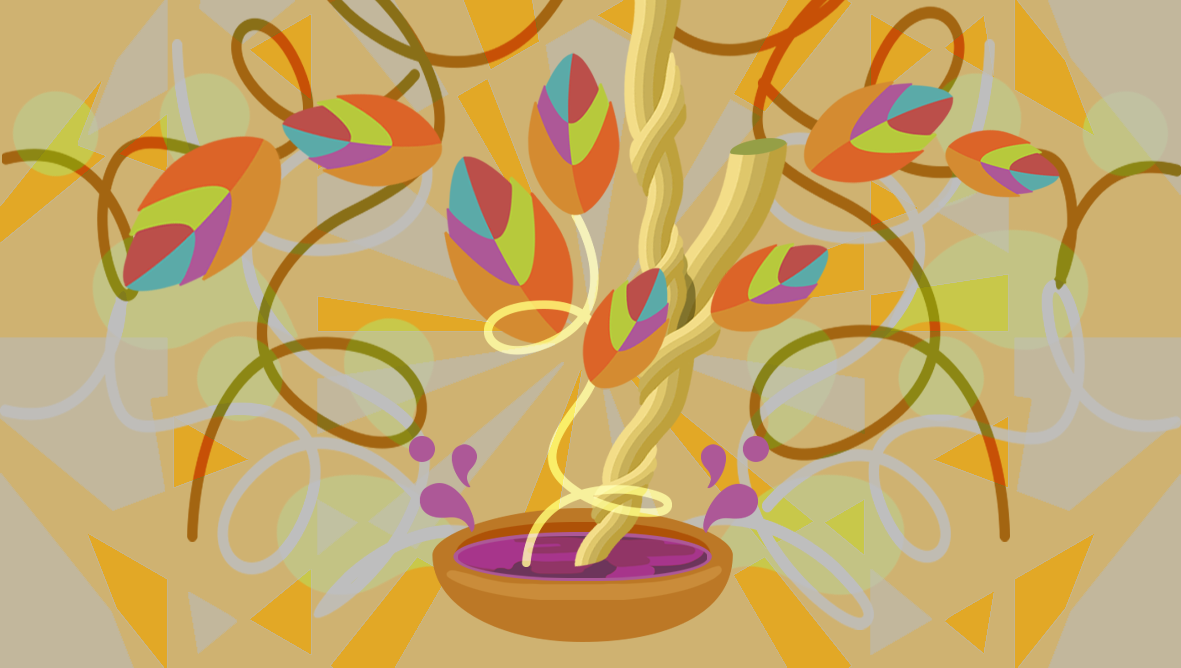- Meet Chacruna at Psychedelic Science 2025 - May 27, 2025
- Psychedelics and Attachment: Fundamentals, Implications, and New Frontiers - May 16, 2025
- Development Outreach Internship (OPEN) - May 6, 2025
14 Questions the Global Ayahuasca Community Should Consider While Moving Forward

As ayahuasca becomes increasingly popular across the world and is incorporated as a sacrament or medicine within diverse communities and settings—from indigenous communities to churches to ceremonial and therapeutic circles—we see conversations emerging regarding difficult subjects, such as the commodification, cultural appropriation, and sustainability of ayahuasca and ayahuasca-related plants and the traditions and practices surrounding their use. At the heart of many discussions about the globalization of ayahuasca is the commodification of ayahuasca and the ethical dilemmas it presents. This discussion becomes even more timely with the international expansion of ayahuasca and the increase of practitioners motivated by financial gain. While there are many well intentioned people working within the context of the globalization of ayahuasca, we are all faced with the challenge of ensuring that our practices are ethical, mutually beneficial, and sustainable for the local and international communities that we serve and in which we participate. So, how can we do better, living, working, and participating in this globalized community?

The issue of the commodification of ayahuasca is widely debated across the global ayahuasca community, with many different perspectives to consider. Some indigenous people and organizations have spoken out against the commodification of ayahuasca, or its use altogether, by people that do not belong to a traditional lineage or who are considered “outsiders,” suggesting this is a form of “cultural appropriation.” Charging for ceremonies has also been criticized on religious grounds, most definitively in Brazil, where the legislation protects ritual and religious use, but does not allow therapeutic or commercial uses. However, for some indigenous groups, building partnerships with non-indigenous people is a way to provide for their communities’ needs, as governments are failing to support them and guarantee their rights (e.g., in the case of indigenous festivals in Brazil). Indeed, many Amazonians in different countries are willing participants in the “ayahuasca industry” and welcome the participation of foreigners in their rituals or train them as apprentices; they may wish to travel abroad, feel that the expansion of ayahuasca is positive, and that financial reciprocity is reasonable and necessary. The sale of ayahuasca and the commodification of ayahuasca ceremonies is frequently criticized by people from the Global North who may have little understanding of the needs or views of Amazonian people and their struggles for survival. The reality is, many practitioners and ceremonial participants alike, across diverse cultural settings, are faced with this dilemma of whether it is justified or morally acceptable to train outsiders to become healers (e.g., traditional lineages in Peru and Colombia), and to charge money or request donations for ceremonies with what is revered as a “sacrament” or “sacred medicine,” such as in the context of the Brazilian ayahuasca religions and international ayahuasca circles.
Yet, we are also faced with the reality that we participate in a global economy, and it is often through charging for ceremonies that many ceremonial leaders and shamanic healers, whether in Amazonian or Western settings, are able to sustain their livelihoods in the modern capitalist world. Also, in return, it is mostly through paying for ceremonies that Western participants are able to access ayahuasca and provide fair and appropriate compensation to healers and ceremonial organizers for their services. Furthermore, some practitioners argue, this financial exchange may encourage people to value and dedicate energy to their own healing process, and is modest in comparison to the price of specialist care providers in Western societies (e.g., psychotherapists and acupuncturists. On the other hand, the current state of affairs in the ayahuasca industry economy raises problems of accessibility for people with fewer financial resources and, although ayahuasca trade brings income to Amazonia, it can also create inequalities in local Amazonian communities.
Key issues when considering the problems that the expansion and commodification of ayahuasca pose include the training of ceremonial leaders; the agendas of ceremonial leaders, organizers, and participants; and the specific impacts of our own actions and transparency regarding these. We must ask ourselves whether we are engaged in reasonable reciprocal relations with Amazonians from whom we extract ayahuasca and its cultural uses.
What questions, conversations, and actions can advance the responsible, equitable, ethical, and sustainable globalization of ayahuasca? As our mission to promote critical conversations on the use of psychedelic plant medicines continues to spread, Chacruna’s Ayahuasca Community Committee aims to address key issues of relevance to the ayahuasca community. We have collated a list of 14 questions to consider in relation to ayahuasca’s use as part of our collective responsibility to the plants, traditions, and our communities; these questions address Western participation in ayahuasca ceremonies and traditions. Whether you are a first-timer or a seasoned veteran of these traditions, whether you are investing in an expensive Western retreat center in South or Central America, opening up a new local circle in the Bay Area, thinking of moving abroad to become a facilitator in a retreat center, starting a new transnational chapter of a Brazilian ayahuasca religion in the Global North, visiting a local curandero in their house, surfing the internet to pick a location for your experience, partaking in ceremony with a travelling Brazilian indigenous group (comitivas), or are an itinerant ceremonial leader trying to make a living, we encourage you to explore these questions with us, and help ensure the future responsible ayahuasca use across the world.
We have collaborated with experienced practitioners and participants across diverse ayahuasca contexts and communities to create this list of questions. This document addresses the context of the globalization of ayahuasca and does not speak to local practices that do not engage with Westerners We aim to simultaneously address diverse settings that engage with national and international participants, organizers, shamans, and centers, and therefore some of the questions might not be appropriate for all of them. Also, we understand that some of these questions are delicate and raise complex issues that do not necessarily have simple solutions and require addressing in more depth, beyond the scope of this document. Further, we are aware that ayahuasca’s legal status in many countries poses significant challenges. However, as a growing international community, we encourage all practitioners and participants to contemplate the points below and hope that these questions serve as the beginning of a larger conversation.

1. What are the local customs for compensating ayahuasca providers for their time and service, and what can we learn from this?
What kinds of relationships with the ayahuasquero/curandero are a prerequisite to attending a ceremony? Can just anyone attend, or only people who are invited? Do local community members usually expect to exchange money, goods or labor in order to participate in an ayahuasca ceremony? Is permission to attend solely based on providing some form of payment, or does it involve an ongoing relationship, and other forms of reciprocity, with the shaman, their family, and the local community?
2. How much does the ceremony or retreat cost, or what donation is the participant expected to make?
Does this price or expected donation seem to be a fair exchange for the care and facilities compared to other providers in that local area who offer similar services? Are there extra costs that arise along the way which were not included in the original agreement? Do other people in the community feel that the prices being charged or donations being requested are fair?
3. Does participants’ well-being take precedence over financial motivations?
Are participants properly screened before ceremony to assess their suitability for ayahuasca and whether it will be genuinely beneficial for them? Are practitioners devoted to the well-being and healing of their participants? Are participants most concerned with engaging in a healing ritual or merely “getting the most value for their money”?
4. How are ceremonies/retreats/tours advertised or promoted? Does the marketing or description of ceremonies/retreats/tours seem sensationalistic?
What are the ethical standards that the organizers hold in relationship to advertising or promoting ceremonies? Are hyperbolic claims made about ayahuasca as a miracle cure? Is language used to appeal primarily to consumer sensibilities (e.g., promotions, add-on packages, luxuries etc.)? Are there marketing/re-booking tactics used to push or sell additional products, ceremonies/retreats while people are still under the influence of the medicine, or during the days immediately following? Is there an attempt to promote or push the need to use ayahuasca? Is there religious proselytism?
5. Are hardship discounts available, or a way to make the experience more accessible for people with limited financial resources?
If a center or circle considers itself a spiritual or religious congregation following the Brazilian ayahuasca religions, are they keeping traditional standards of, as much as possible, not having money be a barrier to being part of the practice? Are there opportunities for spontaneous donations and not fixed fees? Likewise, do they ask regular members to tithe a portion of their income as a means of supporting the larger community, including those with fewer resources? Regarding other ceremonial contexts: Are locals in the region able to participate in ceremonies for free or on a donation basis? Are work-trade positions or discounted ceremonies and retreats available to those who are unable to pay full price?
6. Are local and/or native people employed, and are they in positions of power?
If in a center or circle setting, are locals or indigenous people welcome to be involved in ways that resonate with their own lifestyles? Are they simply “employees,” or do they have decision-making abilities? Are local or indigenous healers and their communities shown respect, or do they appear tokenized (i.e., are their names and ethnic communities not provided)? How well integrated are the different cultural groups within the center or community?
7. Are local or indigenous people paid fairly for their services and expertise?
Are high prices charged in dollars from visitors distributed in ways that respect and assist in local livelihoods? Do the financial relationships sustain local communities? Are the working conditions fair? Are employees able to see their families as desired, and do they receive an appropriate number and duration of breaks from their work? In cases of traveling indigenous shamans or groups (comitivas), ethnic or shamanic tourism in an indigenous village, or participating in the Brazilian indigenous festivals: Do people in the community believe that they are benefiting fairly from the travels of individual shamans or comitivas, or community events, such as festivals and retreats in the village? Are members of the community given the chance to travel abroad, or only a few?
8. How have the ceremonial leader, facilitators, and assistants been trained?
How, for how long, and by whom have they been trained? According to experienced people in the community, are the ceremonial leaders experienced enough to be conducting ceremonies, and are ceremonial assistants experienced enough to support them and participants? Is the shaman or ceremonial leader related to any identifiable lineage? Do they have a community including spiritual and political authorities, that recognize them and to which they are accountable?
9. Where are the ayahuasca and ayahuasca-related plants sourced from?
Does the ceremonial leader know the source of the plants or the person who is responsible for preparing the brew? Are they able to disclose which plants and admixtures have been used to make it? Is ayahuasca coming from the Amazon, or from other places with tropical climates? Is the person who cooked the brew recognized as sufficiently skilled to have this responsibility? Is ayahuasca sustainability taken into consideration when choosing from where to source the plants? Is a contribution being made to the planting and stewardship of Banisteriopsis caapi and Psychotria viridis and other admixture plants?
10. Are environmental and community concerns and efforts supported and respected?
What is the relationship between the center, circle or ceremonial leader and their local community and environment? Is the local environment cared for (e.g. recycling practices in place, garden maintenance)? Does the center, circle or ceremonial leader do anything to give back to their local community? Does the center, circle or ceremonial leader have a local community-oriented or environmental project? If so, is this project effective for the beneficiaries?
11. What is the basis of voluntary programs and “work trade” agreements for enabling access to ayahuasca?
Are these exchanges mutually beneficial? Are volunteers learning something and benefitting from their experiences, or merely providing free labor? Are volunteers given time and support to process their experiences with ayahuasca?
12. Are support and integration services available following ceremonies or retreats?
What is the level of accountability that ceremonial leaders and organizers have towards their participants? Do they offer a way, with little to no cost, for people to receive spiritual and emotional support after the ceremonies are over (outside of the need for serious therapeutic or healthcare intervention)?
13. Are legal standards being followed?
Is the center, circle or ceremonial leader operating as a business? Is ayahuasca legal in the country in which ceremonies are being held? Are legal standards being followed regarding hygiene, security, health, food etc.? Is the center, circle, or ceremonial leader paying the required taxes according to the laws of the country in which they are either legally established or operating?
14. Is ayahuasca being used as a means to inappropriately solicit financial resources from you?
Is there a heavy emphasis on making additional payments or donations to the center, circle, or ceremonial leader? Are participants asked to consider investing or entering into a business partnership with the ceremonial leader or organization without first establishing an appropriate relationship or having requisite experience with ayahuasca?
To discuss more on the commodification of psychedelics, please join us at the Psychedelic Liberty Summit

Take a minute to browse our stock:
Did you enjoy reading this article?
Please support Chacruna's work by donating to us. We are an independent organization and we offer free education and advocacy for psychedelic plant medicines. We are a team of dedicated volunteers!
Can you help Chacruna advance cultural understanding around these substances?














